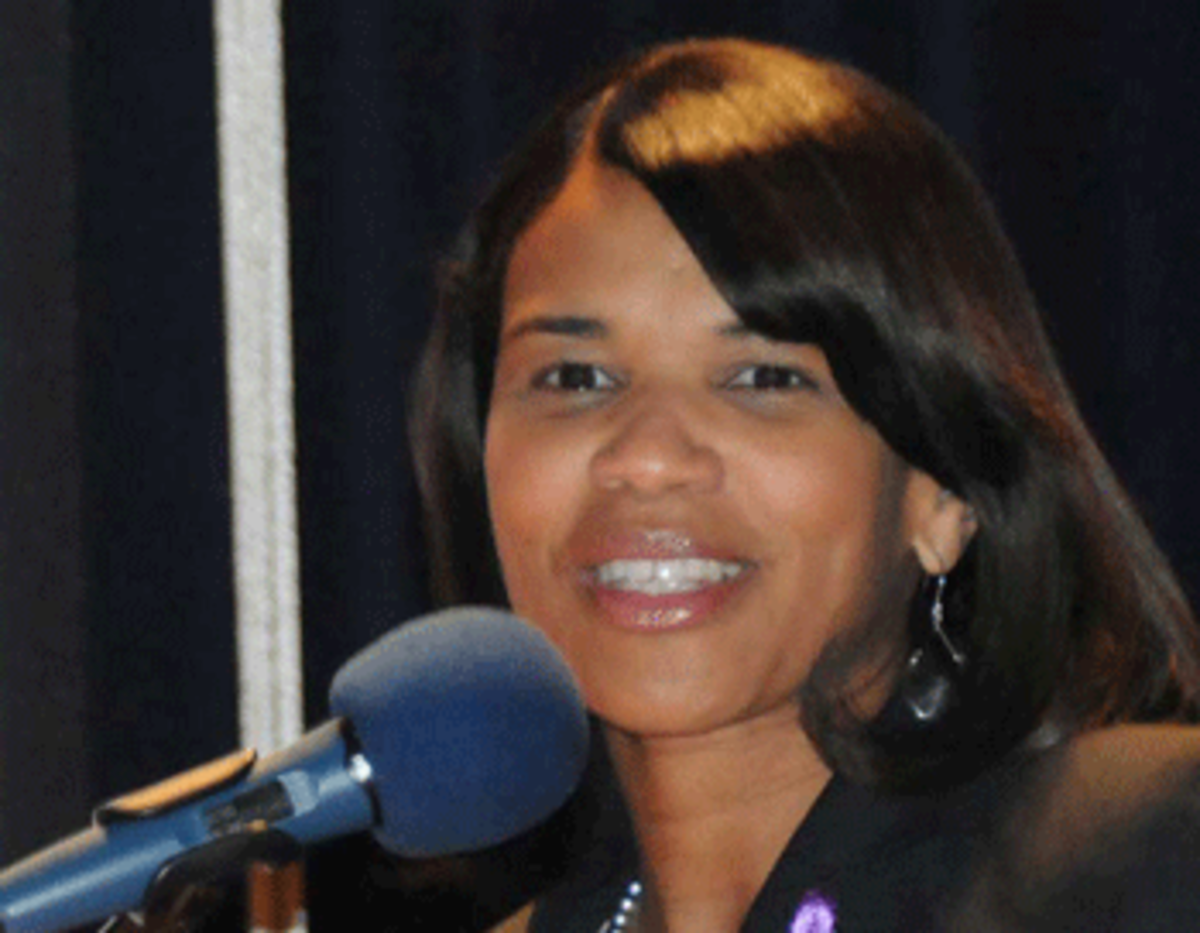
Kemba Smith
We should listen to formerly incarcerated women when it comes to prison issues. After all, women, particularly Black women, are the fastest growing prison population in America.
For example, the recently held 2012 UCLA Law Symposium, entitled “Overpoliced and Underprotected: Women, Race, and Criminalization,” brought together renowned and influential thinkers and lawyers, as well as activists from non-profit organizations. All the panelists focused on incarceration, and many advocated for the creation of a “feminist, anti-racist, prison abolition coalition.”
On the first day, only two Black female panelists identified themselves as formerly incarcerated. One was Kemba Smith. She eloquently told her story. While in college, she began dating a drug dealer. Despite never having used, handled or sold crack/cocaine, Smith was sentenced to nearly 25 years in prison.
I did not catch the name of the other woman, who was filling in for the director of the non-profit where she worked. She did not tell her story, except to say that she had served time in prison. Instead, she shared the goals of her organization, and compelled conference attendees to help break the cycle of incarceration, with more urgency and less flair than Smith.
At the end of the night, I overheard a symposium attendee tell the second woman, “Your talk was really fun!” Weeks later, I’m still curious what about incarceration is “fun.”
I wish I had asked the attendee what she meant by her comment. I would guess that she was well-intentioned. Nevertheless, I wondered what it meant to call a presentation at an academic symposium “fun.” Did it serve as a compliment? Or, as it seemed to me, did it strip this woman’s narrative of legitimacy? Such a comment was not directed at Kemba Smith, the lighter-skinned Black woman who had straightened hair, and wore a suit. No, this comment was for the darker-skinned, “poorly-dressed” woman with thick braids.
How do our own perceptions of people inform our understanding of what they are qualified to say, and why we should (or shouldn’t) listen?
This conference repeatedly referenced Michel Foucault’s notions of power and surveillance, highlighted the historical legacy of slavery, reminded us of color politics and “the paper bag test,” and challenged the stereotypes that have shaped American laws and social policy. Still, we needed to revisit the basics of feminist standpoint theory and “relations between the production of knowledge and practices of power.” Standpoint theory emerged as a “way of empowering oppressed groups,” and “valuing their experiences”, but the second speaker’s experience and voice were not honored. By suggesting that this panelist’s talk was “fun,” one conference attendee discredited the panelist’s voice, merely reproducing the structures that confine and silence certain women.
Everywhere, we should welcome the voices of all women. When working towards a feminist, anti-racist, prison abolition coalition, we should especially try to include all formerly incarcerated Black women. Unfortunately, we don’t.
(Photo Credit: LA Progressive)